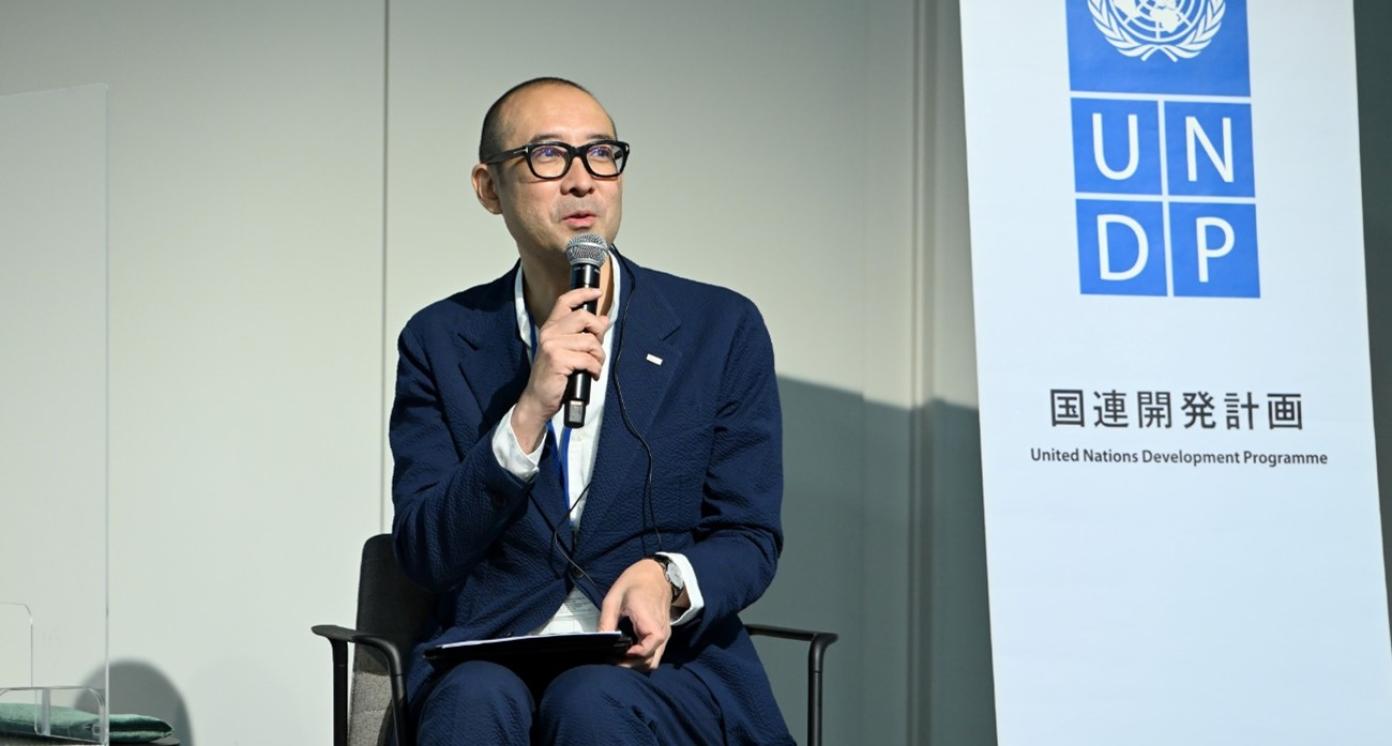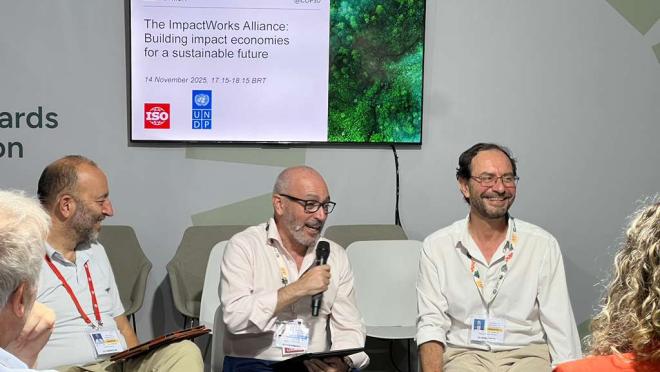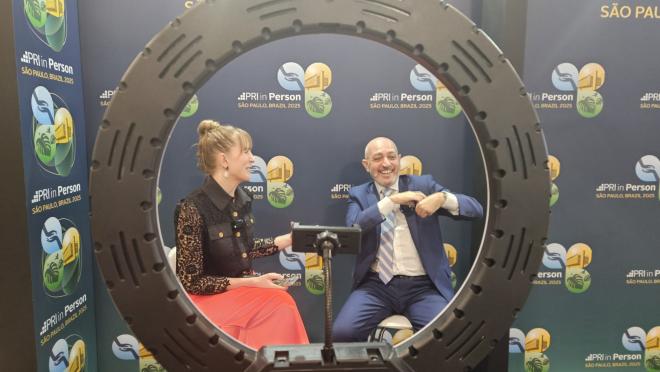Tokyo, December 19, 2022: The United Nations Development Programme (UNDP) conducted the world's first SDG Impact Standards Training for Enterprises in Japan in August 2022. The training is aimed at businesses and investors. The first cohort to benefit from the training were 30 Mizuho Financial Group employees. In this interview, we asked Mr. Kotaro Sueyoshi, General Manager, Sustainable Business Planning Division & SDGs Business Desk, Corporate Business Coordination Department, Mizuho Financial Group, Inc. Mizuho Bank, Ltd.,on his thoughts of the training and why it is so important to help pivot Japan from shareholder capitalism to stakeholder capitalism. He also discusses why Mizuho is committed to sustainability and the SDGs.
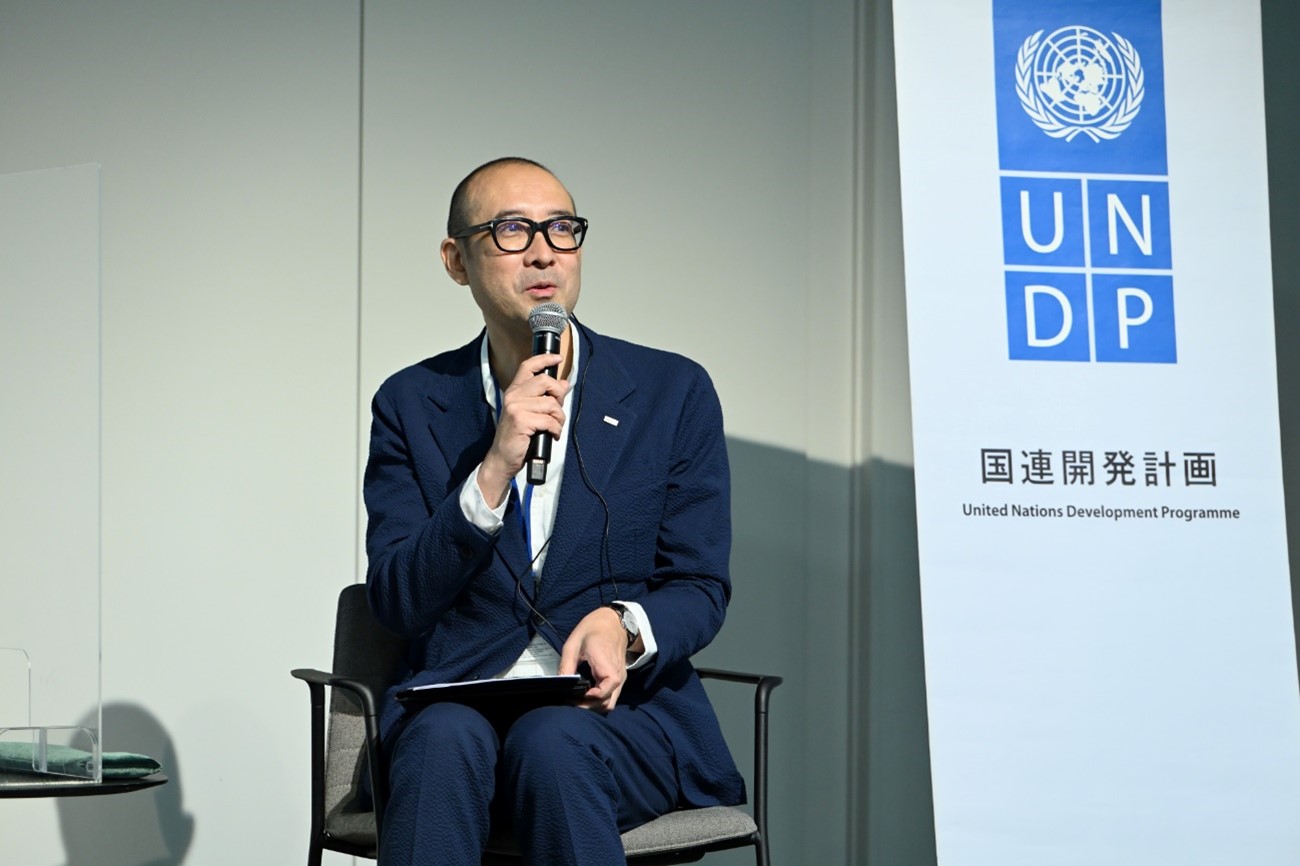
Background
Why did Mizuho Financial Group decide to take the SDG Impact Standards Training?
In response to the global trend toward achieving the SDGs, businesses , who are also our customers, are beginning to be asked by various stakeholders to balance environmental and social values with corporate values, both in Japan and overseas. In particular, in order to “synchronize” the sustainability of society with the sustainability of companies, we feel that there is a growing expectation for innovations by businesses and corporations to “internalize negative externalities” ̶ in other words, address the environmental and social problems through businesses’ actions.
On the other hand, financial institutions themselves, especially indirect financial institutions based in Japan such as our group’s banks, have medium- to long-term close relationships with corporations. As the term "main bank governance" signifies, financial institutions like us, are involved in the management of client corporations while also providing non-financial services as a third-party. We also work alongside them in their growth strategies and business restructuring. In response to the aforementioned changes, financial institutions are beginning to seek a new framework to support the creation of both environmental, social and corporate values for their clients’ businesses.
Therefore, our motivation for attending this training course was to acquire the expertise needed of financial institutions in the era of sustainability. In other words, we wanted to acquire the capabilities to comprehensively evaluate not only the "positive" but also the "negative" impacts of the business’ actions and innovations. We also wanted to understand how to manage the impacts through a meaningful Impact Measurement & Management (IMM) framework. Therefore, with a view to providing value-added services to our clients, we selected a diverse group of employees as participants to this training course, ranging from those in charge of evaluating impact investments and loans to those who provide consulting services to our clients.
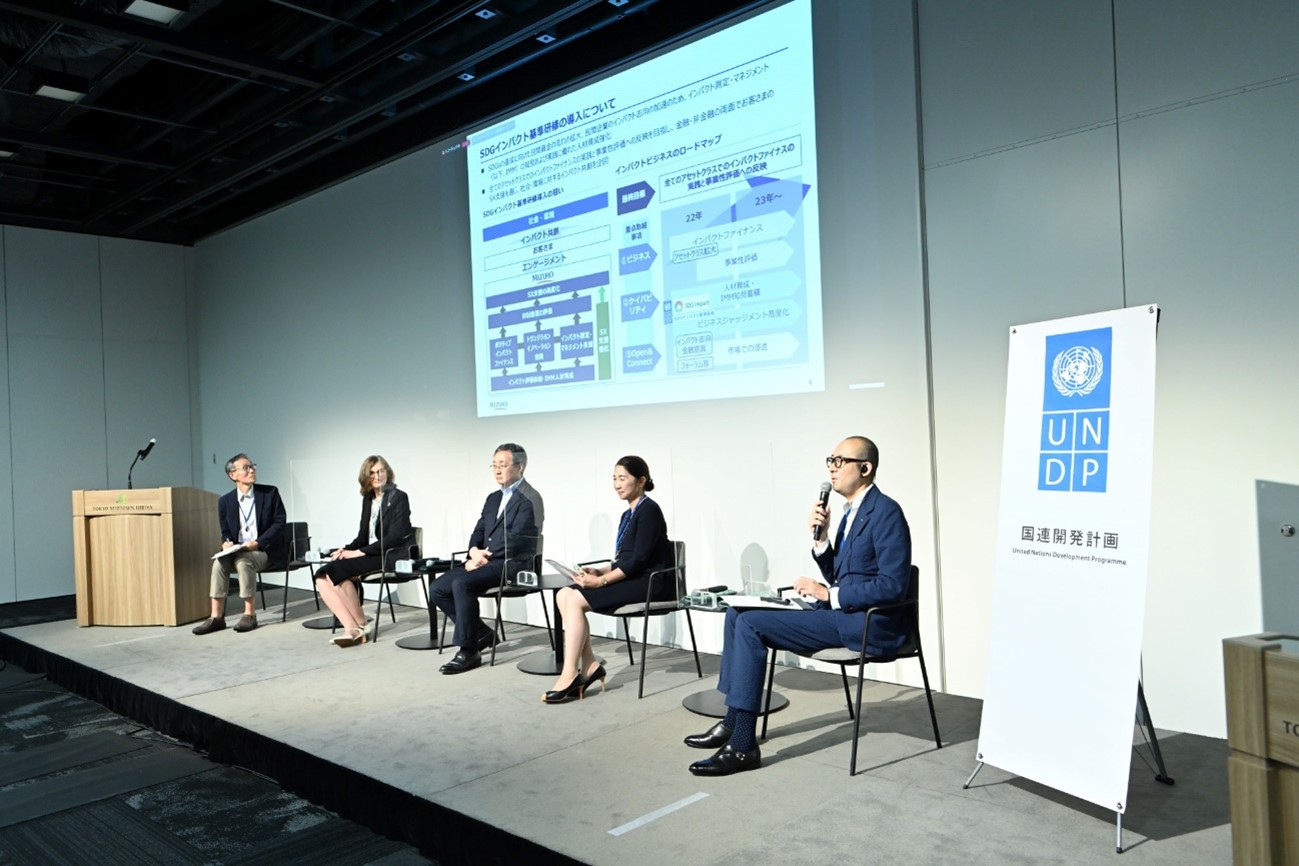
Mr. Sueyoshi presenting Mizuho's initiatives at the global launch event of the training (Photo by UNDP)
New Learnings
What are your impressions of the actual training?
The training was intense from day one until the end. It kept us thinking about why corporations and financial institutions need to mobilize or provide financing for impact, and what “managing for impact” actually means.
The training was divided into three main modules. First, participants received inputs on current trends surrounding impact to deepen their understanding while systematically organizing the knowledge necessary for implementation of sustainability-related initiatives. After that, the participants acquired IMM perspectives, and learned practical knowledge of SDG Impact Standards for Enterprises through 12 Enterprise Actions, all of which were based on real-life case studies. In other words, even those who do not have basic knowledge of impact financing can learn systematically and practically.
There are three major lessons that I personally have learned through the three modules. Firstly, it is the businesses that have the biggest influence and power to generate innovative solutions and execution of environmental and social sustainability. Therefore, the innovation needed to achieve sustainability is a new key point in business competitiveness.
Secondly, a new approach to management, where sustainability and the SDGs is at the core of decision-making, is necessary for the shift to innovation and new business initiatives that contribute to sustainability amidst business competitiveness. In this training course, the participants learnt how to do just that based on the company's raison d'etre and capabilities. The training also helped us understand the process of identifying our most important impact areas and aligning these with our purpose and strategy, while considering the organizational culture, structure, and capabilities.”
Thirdly, the SDG Impact Standards is an overarching decision-making framework that promotes a major shift in the social significance of companies: the pivot from shareholder capitalism to stakeholder capitalism. Stakeholder capitalism is characterized by the realization of a sustainable environment, society, and economy, and the provision of values that contributes to sustainability for a diverse range of stakeholders. In my view, this is exactly what managing for impact aims for.
Looking to the Future
What is your message for the future?
In Japan, the Government's "New Form of Capitalism" has been encouraging not only individual company-based initiatives, but also the entire business circles as a whole to embark on sustainability-centric management, as exemplified by the proposal of the Japan Business Federation (Keidanren) “Using Impact Metrics to Promote Dialogue with Purpose as Starting Point – Action for Sustainable Capitalism by Companies and Investors” and the establishment of the Impact Startup Association.
In the financial industry, the Financial Services Agency's Expert Panel on Sustainable Finance has established an impact investment study group. In fact, many financial institutions are practicing IMM by providing impact investments and loans to client enterprises, confirming the feasibility of the internalization of negative externalities by these clients, and moving toward supporting the visualization of non-financial value creation.
This wave of placing sustainability at the centre of business decision-making is expanding globally and at a very fast pace, we anticipate a big swell in the not-too-distant future. “The beginnings of all things are small," as Marcus Tullius Cicero once said. Please keep your eyes on UNDP SDG Impact, the epicenter of the wave, so as not to miss this new trend of sustainability management.
Reference
Mizuho to Become the World's Fir... | Mizuho Financial Group (mizuhogroup.com)















